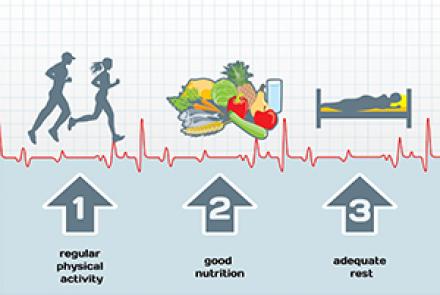
Dr G Kandasami, Chief, National Addictions Management Service (NAMS), Singapore, gives a comprehensive overview on alcohol abuse and addiction and suggests measures to reduce addiction problems.
How do you differentiate between social drinking and alcohol addiction?
Social drinking is just drinking for fun during social occasions and there won’t be any compulsion in one’s mind to continue drinking regularly. There won’t be any consequences to your drinking. You will not lose control over your habits. You will not be using alcohol to cope with psychosocial problems. Whereas in addiction, there will be a strong urge to drink regularly. You will be constantly preoccupied with a desire or a strong motive to find your next drink. You will be drinking increasing amounts to get the same desired excitement. If you do not drink, you will be experiencing physical withdrawal symptoms such as handshakes and sweats. You will continue to drink despite facing several consequences or would have tried unsuccessfully several times to quit.
How does smoking addiction differ from alcohol or drug addiction?
Whether you are addicted to alcohol, drug or smoking, the core features that I mentioned above remain the same. Except that in smoking addiction, the withdrawal symptoms may not be just physical - it consists of mostly psychological symptoms such as mood swings, anxiety, sleeplessness etc. Smoking is legal and so you won’t be facing any legal consequences compared to heroin or other illegal drugs. Smoking has significant physical consequences such as lung cancer, heart disease and various other forms of respiratory and other organ problems, while alcohol abuse leads to cirrhosis of the liver.
Does it affect men and women differently? (Prevalence and symptoms)
When the addiction develops, it does not affect the sexes differently. However, research suggests that in some countries women who have trouble with their closest relationships tend to drink more than other men. Heavy drinking is more common among women who have never married, are living unmarried with a partner, or are divorced or separated. A woman whose husband drinks heavily is more likely than other women to drink too much. Many studies have found that women who suffered childhood sexual abuse are more likely to have drinking problems. Depression is closely linked to heavy drinking in women, and women who drink at home alone are more likely than others to have drinking problems later.
Heavy drinking during pregnancy can affect the new born with birth defects. Women can also get easily intoxicated compared to men because of their relatively more body fat content than men as alcohol absorption rate is affected by various factors.
Generally women appear to be more vulnerable than men to many adverse consequences of alcohol use. Women achieve higher concentrations of alcohol in the blood and become more impaired than men after drinking equivalent amounts of alcohol. Research also suggests that women are more susceptible than men to alcohol-related organ damage.
Do people with an addiction problem have sufficient insight to seek help? Or does a friend/family member have to take the lead?
Most times, those who are addicted have good insight into what is going wrong in their lives and yet they may or may not be able to take the necessary action in view of various factors such as craving, significant compulsion to drink, or may be under the denial that they may not need any help or just being overconfident that they can control it themselves. Having said this, some may also genuinely lack insight as well as they may think that they are functioning reasonably well despite drinking heavy amounts and so they cannot be addicted to alcohol which may not be true. They believe that an alcoholic is someone who drinks but can’t control his/her drink - falling down, lying curled up on the streets in heavily intoxicated states. This perception is not always true.
Usually it is the family member who notices the early signs that the loved ones are not right and try to bring them to seek help. They can take the lead first but it is the collective motivation and efforts from the loved one who is affected and the family members who should be non-judgemental in their support throughout the treatment and recovery process which will lead to good outcomes in terms of achieving and maintaining sobriety in long run.
When should a friend or family member seek help? What are the initial signs?
Some of the early signs would be coming home drunk regularly after work, or financial bills on the rise, missing appointments, going late to work, missing assignments (for students and adults), giving more preference to alcohol filled parties, frequently visiting doctors for minor gastric complaints, using alcohol to sleep or cope with stress , hiding drinks under the bed or in the shelves, mood swings, being easily irritable or feeling shaky, anxious or excessively sweating in the morning after a previous night’s drinking bout. As soon as you notice any one of the above, you can check with your loved one whether he or she has any concerns about their alcohol intake and if in doubt, take them to a GP or a Polyclinic for a consultation.
How can they convince the person that it has gone beyond social drinking?
Family should not immediately throw a lot of criticism as it may backfire with their loved ones showing more resistance to seek help. Instead, it is not easy but one can try to increase awareness about the early warning signs in a non-judgemental way and gently cajole them to seek professional help.
Forcing someone to seek help may usually meet up with a lot of resistance as those who are addicted may try to avoid visiting a professional because of the fear that they may be labelled as an alcoholic or under the denial that they may be ok or they may not be ready to seek help yet.
What are the consequences of alcohol addiction?
When someone gets addicted to alcohol, heavy regular intake of alcohol would gradually begin to affect physical health as alcohol affects almost all the organ systems in the human body. The most fatal complication is the severe liver failure which can happen over a period of many years. The other serious long term physical complications would be enlarged heart, high blood pressure, cancer of the gut , brain damage with the development of dementia and peripheral nerve related chronic pain in hands and feet, poor nutrition with recurrent infections andhead injuries with the risk of developing seizures due to multiple falls etc.
From a mental health perspective, there is a high risk of developing mood, anxiety and psychotic disorders. Marital discord, loss of employment, severe financial and other social and legal consequences can arise due to alcohol addiction.
Does depression lead to alcohol addiction or does addiction lead to depression?
Both can happen. When someone is depressed, the low mood, lack of excitement in life, lack of sleep and associated symptoms can all push that person to use alcohol as a coping strategy and in the process he or she can get addicted to it. The reverse can also happen or the underlying depression can get worse when the depressed person heavily indulges in drinking because alcohol is a central nervous system depressant.
What are the treatment options in Singapore?
In Singapore, the National Addictions Management Service [NAMS] situated at the Institute of Mental Health is the main centre which provides treatment for all forms of addictions. NAMS has a multidisciplinary team of specialist doctors who provide medical management of detoxification and supportive medical treatment for relapse prevention and comorbid mental health problems. NAMS has a team of counselors who provide both individual and group counselling based on motivational interviewing and cognitive behavioral therapy techniques for patients and their family members. The team has Medical Social Workers who arrange essential social support for clients who lack crucial resources to support their recovery process in the community. The team’s psychologist provides more structured psychotherapy for clients with psychological needs.
NAMS runs an outpatient clinic and an inpatient ward which provide residential services at the Institute of Mental Health. NAMS runs satellite clinics at Queenstown and Geylang Polyclinics.
In addition to NAMS, Changi General Hospital and National University Hospital also provide treatment for alcohol addiction problems and help is also available in private hospitals too. Singapore has several Halfway Houses which provide long term rehabilitation support in the community. WECARE is a day Centre, situated at Eunos which provides support in the community for recovering clients. Recovery is a lifelong process and so it would not be a surprise to see clients visiting multiple agencies in the community to eventually maintain their sobriety.
What are the most significant barriers to seeking treatment?
The most significant barrier is the difficulty in motivating oneself to seek help. It is not easy to overcome the initial hesitation and ambivalence to change a habit. As recovery is a lifelong process, many may give up their motivation to sustain their efforts to maintain sobriety. Professionals who work in the addiction field use motivational interviewing techniques in their treatment methods to improve and sustain one’s efforts to start and maintain the recovery process and it is not an easy job.
Self-doubting as to whether the treatment will work, lack of insight, stigma, social anxiety, cost of treatment, unresolved social and family issues can all delay seeking help.
Any final thoughts on what we need to do pro-actively to prevent Alcohol addiction - as an individual and as a community.
Alcohol related problems cause immense costs to society in terms of health care expenses, loss of productivity, and increased mortality and morbidity to human lives. So prevention should focus on stopping people from starting abusive drinking patterns very early in their lives and it is also not an easy job as people drink for different reasons and under a wide variety of circumstances.
From a family perspective, lack of a positive parent–child relationship and family history of alcohol problems can increase risk for underage drinking. So any programs that focus on parenting practices which improve parent-child communication and bonding and effective family management can reduce the risk for developing early alcohol related problem behaviors in children and adolescents.
Similarly, any specific targeted prevention programs aiming at schools, universities and work environments to reduce abusive drinking patterns very early can help the vulnerable ones to develop serious problems with alcohol addiction in the future.
Limiting alcohol sales to minors, increasing enforcement of underage drinking laws, changing alcohol policies at community events, increasing prices for alcoholic beverages as well as increasing public awareness about the problems associated with underage drinking and alcohol addiction - all these community and policy based interventions have been shown to be successful around the world in minimizing the risk for developing serious alcohol related problems both for the individual and for the society as a whole.
Dr G Kandasami is chief at NAMS. He is also Senior Consultant & Chief, Institute of Mental Health and Adjunct Assistant Professor, Psychological Medicine National University of Singapore, Yong Loo Lin School of Medicine.
















